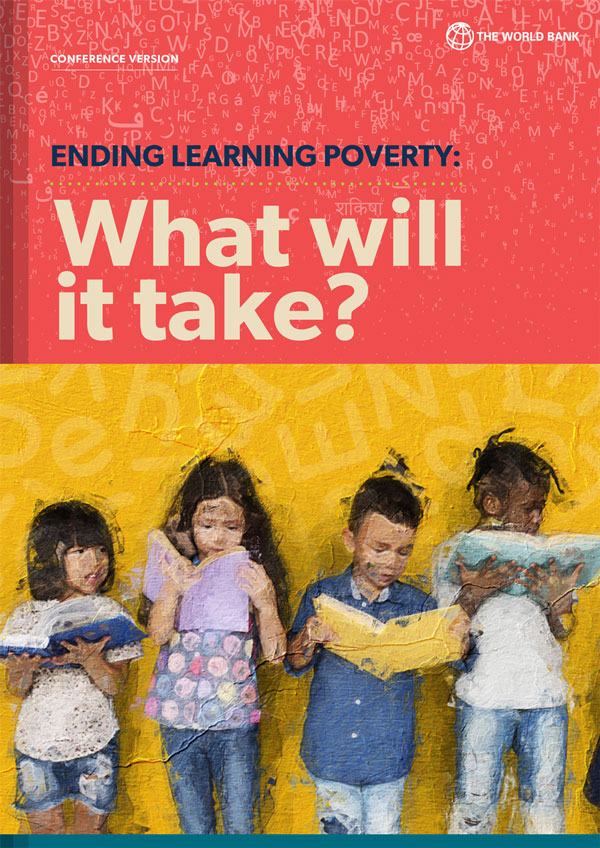
Poverty indicator ➡SELECT COUNTRIES ➡ ✳ Botswana 🇧🇼 48.3 | ✳ DRC 🇨🇩 86.0 | ✳ Australia 🇦🇺 8.6| ✳ Ethiopia 🇪🇹 90.3 | ✳ Uganda 🇺🇬 82.8 | ✳ South Africa 🇿🇦 79.8 | ✳ UK 🇬🇧 3.4
Kampala, Uganda | THE INDEPENDENT | The World Bank has today in Kampala released a report detailing what it will take to end ‘learning poverty’ by 2030. It was released on End Poverty Day October 17, to highlight issues that affect ‘reading poverty’.
“All children should be able to read by age 10. Reading is a gateway for learning as the child
progresses through school—and conversely, an inability to read slams that gate shut. Beyond
this, when children cannot read, it’s usually a clear indication that school systems aren’t well
enough organized to help children learn in other areas such as math, science, and the humanities either,” the report states.
It warns that “although it is possible to learn later in life with enough effort, children who
don’t read by age 10 — or at the latest, by the end of primary school—usually fail to master
reading later in their schooling career.”
One key finding of the study is that it is best to first teach children in the language they speak and understand.
“Children gain reading proficiency if taught in their home language first. Students taught to read in a language they do not speak at home have great difficulty learning,” the World Bank study states, adding that, “Many become frustrated and disengaged, and are more likely to leave school early and with less knowledge capital.”
“By contrast, research has shown that students in early grades who are taught in their home language achieve higher reading comprehension. In fact, research in Sub-Saharan Africa has indicated that learning how to read in one’s home language can help students acquire greater skill in their second language in later years: the practice of decoding in a language they speak can be applied when they attempt to learn in a second language.”
Another key conclusion is that reading skills are not built exclusively through school-based instruction.
“While high-quality formal instruction in primary school is imperative, home reading and preliteracy activities in early childhood education are also essential. The evidence confirms the importance of a conducive home environment for literacy outcomes. A study from Uganda found that the factor that influenced learning outcomes in early literacy was having reading materials at home.”
The report added that, “A more comprehensive study from the Philippines, Uganda, Mali, and Ethiopia found that the home learning environment was a predictor of literacy across all contexts, with the most critical component of the home environment being access to print material.”
The report notes the failure to reduce learning poverty across the world, and warns that by 2030 the learning poverty rate will still be 27% — considerably higher than the rights-based target of zero.
“As the largest external financier of education, the World Bank assumes a responsibility to support countries in reducing learning poverty by at least half by 2030.”
To measure the drivers of learning meanwhile, the World Bank has launched the Global Education Policy Dashboard (GEPD).
The tool will enable countries to monitor how well their practices (or service delivery), policies, and politics are oriented toward learning and attainment for all children. It will measure the quality of key school-level ingredients of learning (teaching, school management, inputs and infrastructure, and prepared learners), as well as the deeper systemic drivers in policies and politics.
THE FULL REPORT
World Bank REPORT 2019 – E… by The Independent Magazine on Scribd
 The Independent Uganda: You get the Truth we Pay the Price
The Independent Uganda: You get the Truth we Pay the Price


